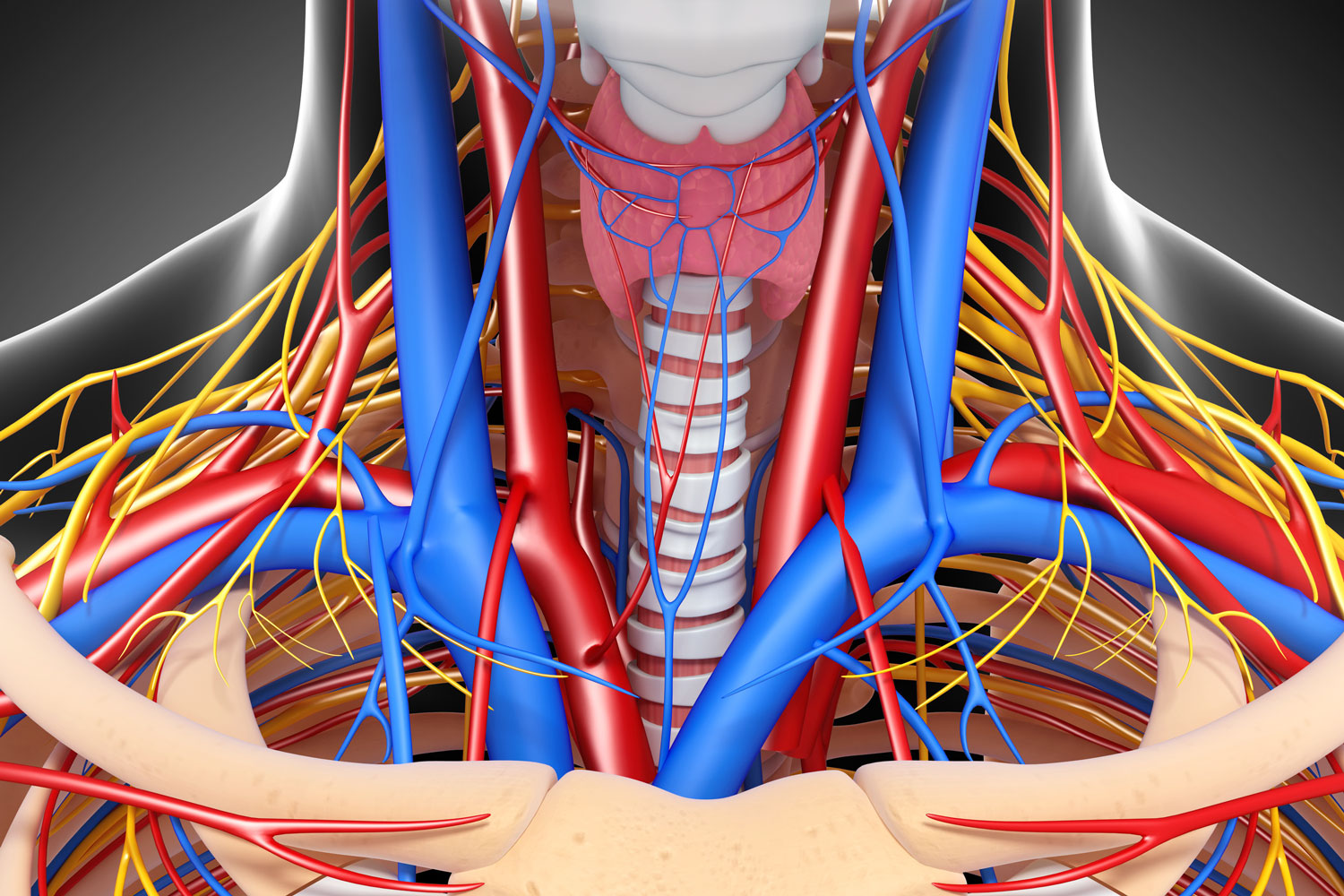Dr. Michael Tierra L.AC., O.M.D.
Hypothyroidism
Hypothyroidism or underactive thyroid is a disease resulting from deficiency of thyroid hormone secretion. It manifests as lowered basal metabolism generally and to a lesser degree as cretinism. Symptoms may include obesity, dry skin and hair, both of which tend to be lusterless, low blood pressure, slow pulse, sluggishness of all functions, depressed muscular activity and goiter. It is measured in the laboratory with a TSH (thyroid stimulating hormone) test. The normal reference range is 0.7-5.0. One may perform a differential diagnosis of primary hypothyroidism from secondary and tertiary hypothyroidism. An increase of serum TSH indicates low thyroid.
Who Does Hypothyroidism Affect?
It tends to be more common in elderly women. One study by Savin et al, found that 22 of 344 (5.9%) healthy persons over the age of 60 had a TSH level over 10. Ten of these had a low T4 and FT4 index. 5 of the 344 had a slightly elevated level of seruum TSH but did not have low T or FT4 levels. In general elderly people experience symptoms of lower metabolism associated with a degree of hypothyroid and subsequent raised serum TSH levels. It there are associated symptoms of hypothyroidism without elevated serum TSH levels then one may suspect hypopituitarism as a cause.
TCM Hypothyroidism Diagnosis
Diagnosis of hypothyroidism is important because much of its symptomology corresponds to conditions associated Deficient Spleen Qi and Yang with Dampness. The typical slow, slippery or soft pulse may be present with a pale, moist, swollen or scalloped tongue with pale facial pallor, swollen and edemic constitution are all indications of hypothyroidism. These symptoms are often associated with symptoms associated with candida overgrowth and various fungal infections. Mild to severe obesity without extraordinary high caloric consumption is also a common condition. A symptom of high cholesterol, another sign of dampness, is also associated with some conditions of Hypothyroidism.
The typical slow, slippery or soft pulse may be present with a pale, moist, swollen or scalloped tongue with pale facial pallor, swollen and edemic constitution are all indications of hypothyroidism. These symptoms are often associated with symptoms associated with candida overgrowth and various fungal infections
What Causes Hypothyroidism?
Besides hereditary factors, it may be that chronic low protein consumption over a prolonged period could be a contributing cause of hypothyroidism. This is to be considered in the light of the various high protein diets such as the Zone diet that seems to be efficacious especially for some to control weight.
What are Traditional Chinese Medicine Hypothyroidism Treatments?
It is not clear to what extent herbal therapy is efficacious in treating hypothyroidism. In any case, various seaweeds such as kelp are commonly used in many cultures such as in Western and Chinese herbal traditions, for regulating thyroid conditions generally.
Given the above indications, Traditional Chinese Medicine (TCM) regards hypothyroidism as a yin conformation disease. While Western medical treatment usually involves prescribing supplemental thyroid hormones, TCM uses appropriate formulas, with no thyroid hormonal activity, according to the patient’s conformation.
Following formulas are the ones most commonly used:
- Rehmannia Eight Combination (Ba Wei Di Huang Wan) when there is accompanying coldness, joint and lower back pains. One can use the Planetary Energetics Yang together with Trikatu formulas for this type of hypothyroidism.
- Vitality Combination (Zhen Wu Tang) when there is a lack of vitality, chronic fatigue, cold hands and feet, abdominal pain and weakness with water retention, occasional dizziness, palpitations, edema, diarrhea and low blood pressure. One can use the combination of Planetary Tai Chi Formula with Trikatu.
- Ginseng and Ginger Combination (Jen Shen Tang) when there is abdominal weakness, poor appetite, occasional vomiting, sweet cravings, craving for hot liquids, excessive, clear urine, loose stool, pale complexion. One can use Planetary Tai Chi formula for this type.
- Dang Gui and Peony Combination (Shao Yao Tang) for individuals with weak muscles, pale complexion, dizziness, heaviness in the head, palpitations, stiff, achy shoulders, anemia, cold extremities, abnormally scanty or excessive menses. One can use Planetary Women’s Treasure and/or Eight Previous Herbs formulas.
- Ginseng and Astragalus (Bu Zhong Yi Qi Tang) for individuals with tired limbs, chronic fatigue, listless speech, anorexia, diminished ability to appreciate flavors, abnormal sweating with a craving for warmth. This is available as a Planetary formula called Ginseng Elixir on the this website.
- Dang Gui, Evodia and Ginger Combination (is used to treat a deficient conformation with an aversion to chills, headache, cold extremities, lower back pain, abdominal pain, leucorrhea and frostbite.
In China today, the basic herbal treatment for hypothyroid is a combination of Rehmannia Eight formula with the addition of sargassum seaweed and laminaria.
Another good resource written by herbalist, Allan Tillotson in understanding and treating hypothyroidism go to the following site: http://www.oneearthherbs.squarespace.com/diseases/hypothyroidism.html
From planetherbs.com

